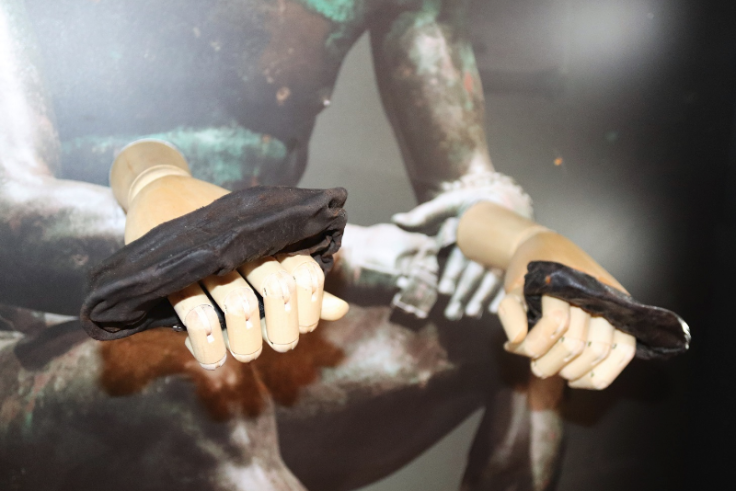'Astonishing' Roman boxing gloves found near Hadrian's Wall in knockout discovery

KEY POINTS
- The gloves date from around AD120.
- The site at Vindolanda is a treasure trove of swords and military and personal possessions from 2000 years ago
Archeologists have hailed as "astonishing" the discovery of what are believed to be the only surviving examples of Roman boxing gloves.
Thought to date from AD120, they have been well preserved thanks to the oxygen-free environment underneath the concrete floor that had been laid by the Romans at the cavalry barrack beneath the stone fort of Vindolanda, south of Hadrian's Wall.
The gloves can still fit on a modern hand and were designed to fit over the knuckles. They were packed with natural material which absorbed shock.
The larger glove is cut from a single piece of leather and folded into a pouch and shows signs of wear and tear but the smaller glove, which is filled with a coil of twisted leather, is in near perfect condition.
Dr Andrew Birley, CEO and The Vindolanda Trust's Director of Excavations said that there were representations of Roman boxing gloves depicted on bronze statues, paintings and sculptures but to have two real leather examples "is exceptionally special."
Experts came quite by chance across the site near Hexham, Northumberland, which dates before the time of the emperor Hadrian. It is the latest discovery at Vindolanda which has been a veritable treasure trove of military and personal possessions such as swords.

"What really makes Vindolanda so unique is the range of organic objects that we find. Every one of them brings you closer to the people who lived here nearly 2,000 years ago but the hairs stand up on the back of your neck when you realise that you have discovered something as astonishing as these boxing gloves," Birley said.
Boxing was a sport undertaken by members of the Roman Army to improve their skills and fitness and fighters would compete in front of crowds with members of the public often betting on the outcome.























